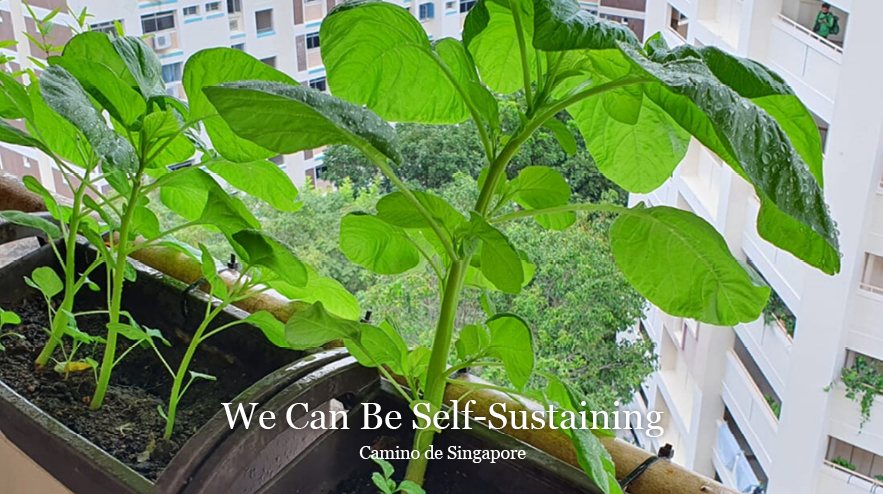No products in the cart.

Living in a fast-paced city-state with a population of 5.8 million people, we have limited land space for agriculture. We have depended on the rest of the world for most of our food needs.
Before, it never occurred to me that this is not sustainable because work kept me so busy. Besides, I can always get whatever I need from wet markets, supermarkets, hawker centres and other shops scattered all over Singapore. As long as you can afford it, you can get almost anything you need in Singapore and even from overseas via online platforms.
But after reading a lot of articles and news, watching documentaries as well as studying about nature, I became more aware of the many different issues about food supply. Then, COVID-19 happened.
This crisis taught me about the risk of being overly dependent on food imports when I saw the scenes of people panic-buying once the Circuit Breaker was first announced. Sustainability is not just about reducing harm to the environment, it is also about food security.
As a result, one of the lifestyle changes I made is to grow my own organic vegetables. My family started growing them along the common corridor two years ago, learning by trial and error. We are also experimenting on an aquaponic inside the house. So far, we have successfully grown and harvested vegetables such as cai xin, bok choy, kangkong, lady’s fingers, and spinach. Although the resulting harvest alone is not sufficient to feed my family, it does supplement what we need. More importantly, through the experience of growing our own vegetables, we came to understand better the importance of a healthy ecosystem and sustainable farming.
This is also something that Singapore is working on—meeting 30% of food demand through vertical farming by 2030. A recent Singapore Food Agency’s 30-million-dollar grant is just one of many initiatives to support the local agri-food industry in ramping up local production of leafy vegetables, fish and eggs. The government is also encouraging all residents to grow their own vegetables with the seedlings that NParks recently distributed.
Growing one’s own vegetables does require some effort but it does have many advantages—it helps you stay connected to nature, supplements your food needs, provides you with fresh organic vegetables, reduces carbon footprint (since no transportation or packaging is needed), helps increase oxygen in the atmosphere, does not use polluting chemicals utilised in large-scale agricultural business, and even helps you to save money.
With this, I hope you feel inspired and encouraged to start growing your own vegetables in your house, balconies, gardens, and corridors.
Happy planting!
Eve Ong is part of the Parish Engagement Team at Caritas Singapore. She is a passionate advocate for the environment who has a great love for God and His creation.
